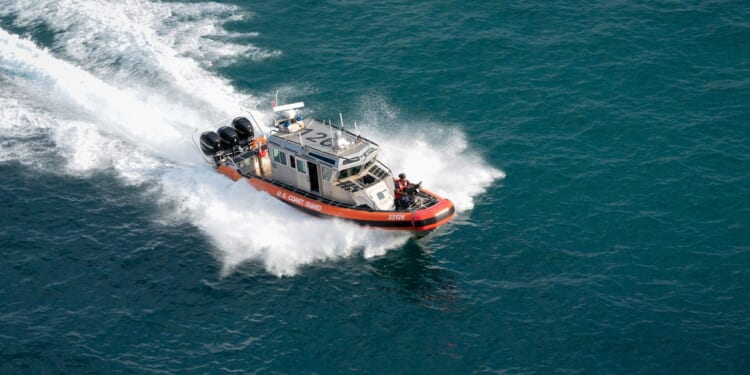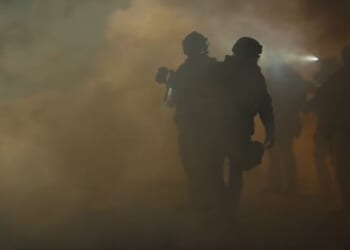The Coast Guard is the butt of countless jokes from the more prominent armed service branches—but is itself an armed service.
The US Coast Guard is largely viewed as a quiet civic service, tasked with rescuing boaters, trimming channels, and enforcing fishing rules. But that image isn’t wholly earned. Despite the jokes of the other branches of the armed forces, the Coast Guard is, in fact, an armed service. And while the existence of the Coast Guard is defensive in nature, relating closely to the maintenance of US territorial integrity, the Coast Guard does have offensive capabilities.
Indeed, the Coast Guard is built, trained, and legally authorized to use force, namely, to seize vessels, board and detain crews, and conduct direction action when necessary. And in wartime, the Coast Guard, by presidential order, can even be transferred to the Navy and operate as an expeditionary combat force. So, while defensive in posture and public perception, the Coast Guard is fully capable of offensive operations when the mission demands.
The Coast Guard Is the US Navy on a Smaller Scale
Granted, the Coast Guard’s offensive operations are not the blockbuster strikes that the other armed service branches routinely conduct. Rather, the Coast Guard conducts pragmatic, high-consequence actions in the littoral and maritime law-enforcement context. Routinely, the Coast Guard conducts interdiction and seizure operations against drug traffickers, human smugglers, and vessels violating sanctions. In counter-narcotics patrols in the Caribbean and Eastern Pacific, Coast Guard cutters and embarked “small boats” often hunt down semi-submersibles, chase smuggling “go-fast” boats, and execute armed boardings that culminate in arrests and the destruction or capture of contraband.
The Coast Guard also fields specialized teams, like the Maritime Security Response Team (MSRT), which conducts direct-action missions including hostage rescue, counter-terrorism raids, and high-risk boardings in hostile or uncertain environments. And in coalition or wartime contexts, Coast Guard cutters have escorted convoys, protected maritime infrastructure, and supported naval task forces—demonstrating that Coast Guard platforms can be used offensively in integrated maritime campaigns.
The Coast Guard’s Offensive Weapons
To facilitate offensive operations, the Coast Guard relies upon a suite of weaponry. Many of its cutters are equipped with:
- A 57mm Mk 110 gun: This is the primary deck weapon on the Legend-class cutter. The gun is capable of engaging small to medium surface targets with rapid precision.
- 25mm cannons (Mk 38): A secondary armament widely used on both boats and land vehicles.
- .50-caliber systems: Dating back to the World War I era, the .50-caliber machine gun has been a mainstay of the armed forces for more than a century.
Beyond deck guns, cutters deploy over-the-horizon rigid-hulled inflatable boats (RHIBs) for boarding operations.
At the individual and unit level, Coast Guard boarding teams carry pistols, rifles, and crew-served weapons. MSRT and boarding detachments train with special-operations-grade breaching gear and precision small arms to execute high-risk raids.
The Coast Guard also has armed helicopters like the MH-60 Jayhawk and MH-65 Dolphin, with door-mounted machine guns capable of providing aerial interdiction and overwatch.
Of course, the Coast Guard lacks the long-range strike weapons available to the Navy—no anti-ship cruise missiles, carrier air wings, or submarine fleets. This is no surprise; the Coast Guard was not designed for blue-water fleet engagements. Rather, the service’s offensive power is precisely tailored for maritime law-enforcement and littoral engagement, to deny illicit use of the seas and to project authority close to shore, interdicting threats before they reach the US homeland.
While often overlooked, the Coast Guard is an important armed service branch—defensive in nature, but capable of offensive operations.
About the Author: Harrison Kass
Harrison Kass is a senior defense and national security writer at The National Interest. Kass is an attorney and former political candidate who joined the US Air Force as a pilot trainee before being medically discharged. He focuses on military strategy, aerospace, and global security affairs. He holds a JD from the University of Oregon and a master’s in Global Journalism and International Relations from NYU.
Image: Shutterstock / KPegg.

















